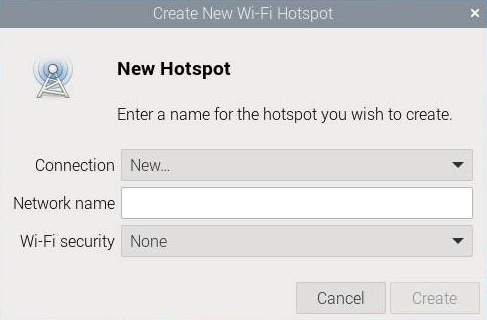Let’s say the grid goes down, and doesn’t come back up. If the fires in Hawaii taught us anything it’s that information will be a requirement with life or death consequences, and power will be your chief limitation to fulfilling that requirement using HF radio. A comms schedule is a must, but what about emergency messages during the night or while you are busy with other tasks? You will want to be monitoring the radio for traffic more then just during your schedule, and in a grid down “austere” environment that will require a lot of power, which will be in short supply.
I have been using Raspberry Pi computers to run my home station for a while now, and with the advent of the Bookworm OS and the Pi 5, I have only become more of a fan. My home setup is a Pi 5 running my Icom 7300 and connected to my home network, then I VNC into the Pi using my laptop from anywhere in the house. While this setup is great while the grid is up, it’s far too power hungry for a grid down scenario. Last summer while I was at the cabin I ran my portable station and replenished both my phone and laptop with a 10 AH battery box that I charged during the day using a 20 watt solar panel. It worked all week, however operating time was limited with the laptop being the biggest drain on the batteries. Both these situations would need to be improved upon in order to operate off grid indefinitely.
The first step to enabling lower power operation is to eliminate the home network as a requirement. So by clicking the Wifi options menu and going into “advanced options”, we will create a hotspot right on the Pi.
Let’s call this hotspot “Portable” (and pretend I don’t already have one with that name) and set up any security we want it to have.
Now, go into advanced menu again, select the hotspot you created, and use the gear at the bottom to edit the connection.
Under the general tab check “Connect automatically with priority”. The default value it 0, which is fine for the hotspot. Once that’s done, do the same with your home network, but give it a higher number than 0, like 1. Once this is done the Pi will look for your home network first, and if it finds the network missing it will then create it’s own hotspot.
To test it out I unplugged the router, and sure enough there were now 2 new networks, one from both the Pi 4 and Pi 5. Note that once you connect it will say there is no internet, which there isn’t, but you will be able to VNC into the Pi just the same. It’s worth noting that the new Bookworm OS makes this so easy now that it has Network Manager. The previous method using dnsmasq & hostapd was much more circuitous!
Now that we have eliminated the need for the home network (which would take a battery bank and inverter, or a generator, to run) we have already made a big dent in the power needed to operate. Also, like I experienced at the cabin, the laptop is the next largest drain on the batteries and now we can leave our station up running with 5 volts at 1-2 amps for the Pi4 or 2.5 - 3 amps for the Pi5 while turning on the laptop sparingly to VNC into nets instead of running the station directly on the laptop.
If that’s still too much power, we can forgo the laptop entirely and plug a touch screen into the Pi and a USB keyboard to type. The screen can then be unplugged when not actively monitoring which means that our burn rate while using the Pi 4 (1.5 A at 5 V) and a very efficient radio like the TX500 (100 mA on 12 V while monitoring) is now only around .73 amps on the 12 volt battery! If we’re not transmitting much and keeping the screen off, it’s not unrealistic to think we could get more than 10 hours out of a 10 AH battery while having the full suite of FLDIGI programs and JS8CALL at our disposal!
Next steps for me are to improve both my solar generating capability (solar panels), as well as my energy storage ability (batteries). If you’re a radio operator and want to be prepared for the cyber attack that they keep telling us is coming, practice your trade now off grid with low power. As the saying goes, we are living in the “good old days” now. The wise ones will make them count!











